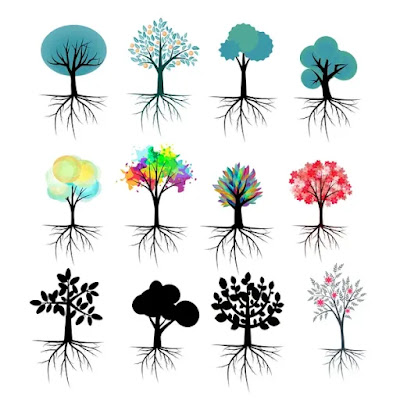Feeling the double movement of roots and fruits
A short “thought for the day” offered to the Cambridge Unitarian Church as part of the Sunday Service of Mindful Meditation
(Click on this link to hear a recorded version of the following piece)
—o0o—
Echoing and expanding upon some words by Jesus (Matthew 7:16), one of our own twentieth-century theologians, James Luther Adams (1901-1994), wrote:
In this church, we accept the truth: By their fruits shall ye know them; but we also accept the truth: By their roots shall ye know them. Where there are no roots, there will be no fruit.
But, whenever a minister of religion like me finds occasion to reference roots it can all often signal that they are about to make a “fundamentalist” turn. As most of you will know, whenever this kind of turn happens in religion — or for that matter in politics — it is highly likely to represent the very opposite of the liberal, cosmopolitan, free-thinking and free-spirit way of being we wish to promote in this community.
Consequently, I need to be clear that when I suggest the value of exploring our roots to help us to continue to bear good fruit in the present and future, I’m using the metaphor in a completely different way to the fundamentalist.
It’s important to see that the fundamentalist use of the metaphor is structurally single — it presents a picture of something that is believed only to grow in one, upwards direction to the sun from out of what is perceived to be a single, eternally stable root.
However, that’s a hopeless misuse of the metaphor of roots because it simply doesn’t echo how plants really grow. When you take a proper look at plants, as the philosopher Emanuele Coccia points out, we find they are ecologically and structurally double in that they are simultaneously always-already moving out towards the bright, life-giving sun above and out into the dark, life-giving earth below.
Given this, as Coccia notes, from our human perspective the root can seem
“. . . like a second body, secret, esoteric, hidden; an antibody, an anatomical antimatter that reverses as in a mirror, point by point, everything the body does, and that pushes the plant in a direction exactly opposite to that of all the efforts it makes on the surface” (“The Life of Plants: A Metaphysics of Mixture” by Emanuele Coccia, Polity Press, 2019, p. 82).
To begin to understand what living this life of double movement might mean for us, try this thought experiment.
Imagine that for each of our own fruitful growing movements, and for every fruitful thought we express and explore here in the visible, daylight realm of the present, there is another, simultaneous, movement going down ever more deeply into the dark, rich and nourishing soil of our past.
Now try to imagine our past not as something dead and gone but as the present, living, nourishing, dark soil through which we are living, moving and having our being just as we are living, moving and having our being in this daylight realm.
Whenever we begin to feel deep in our bones something of this continuous double movement then we begin to have an idea, albeit a vague one, of what it means really to have roots.
In conducting this thought experiment I hope it helps you see that to be a genuinely living and fruiting liberal religious community in the present and future it is essential we need to understand ourselves as still growing deep, liberal religious roots down into the life-gifting complexity of the past. I remain certain that James Luther Adams was a theologian who fully understood this when he said:
In this church, we accept the truth: By their fruits shall ye know them; but we also accept the truth: By their roots shall ye know them. Where there are no roots, there will be no fruit.



Comments